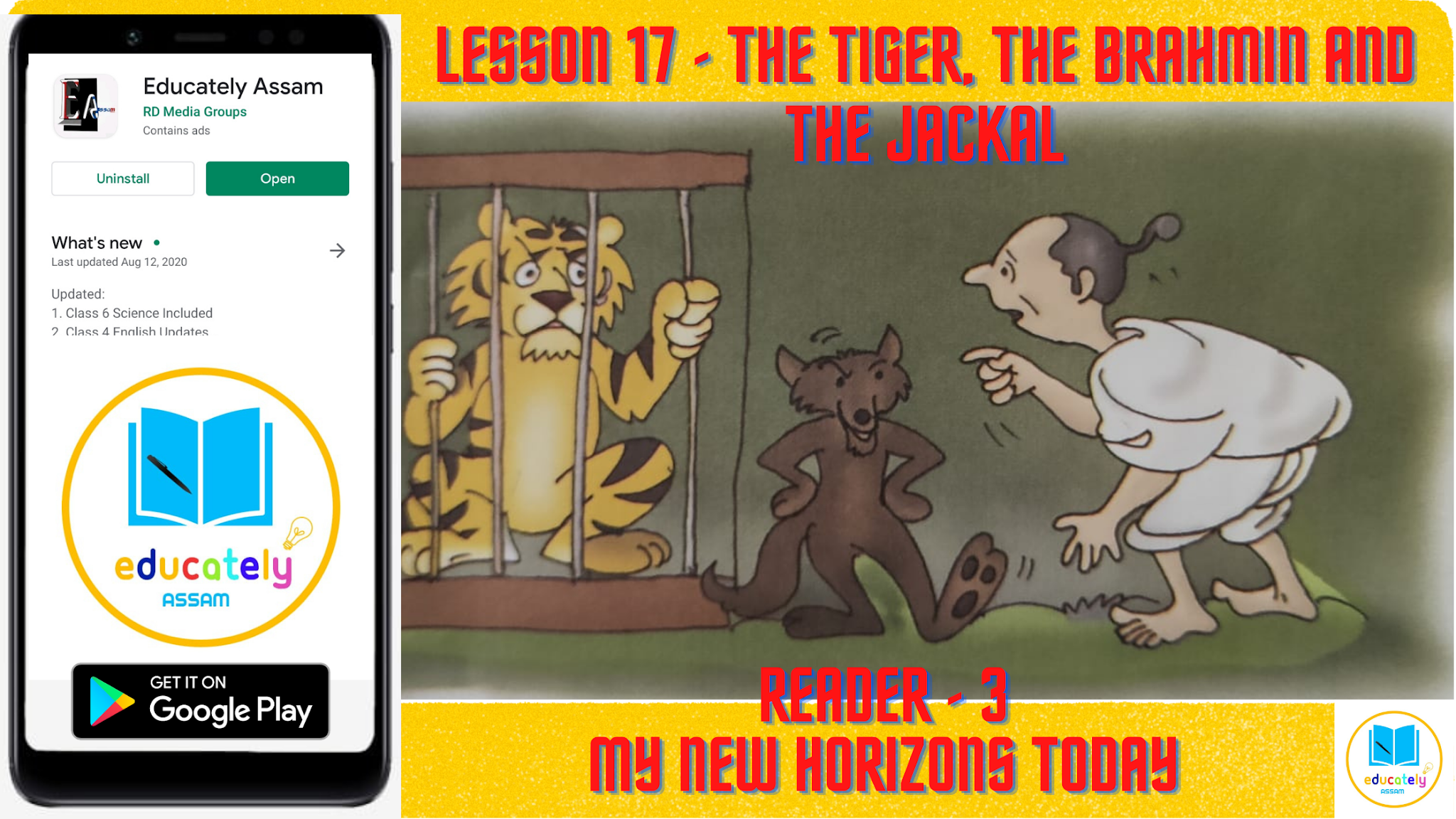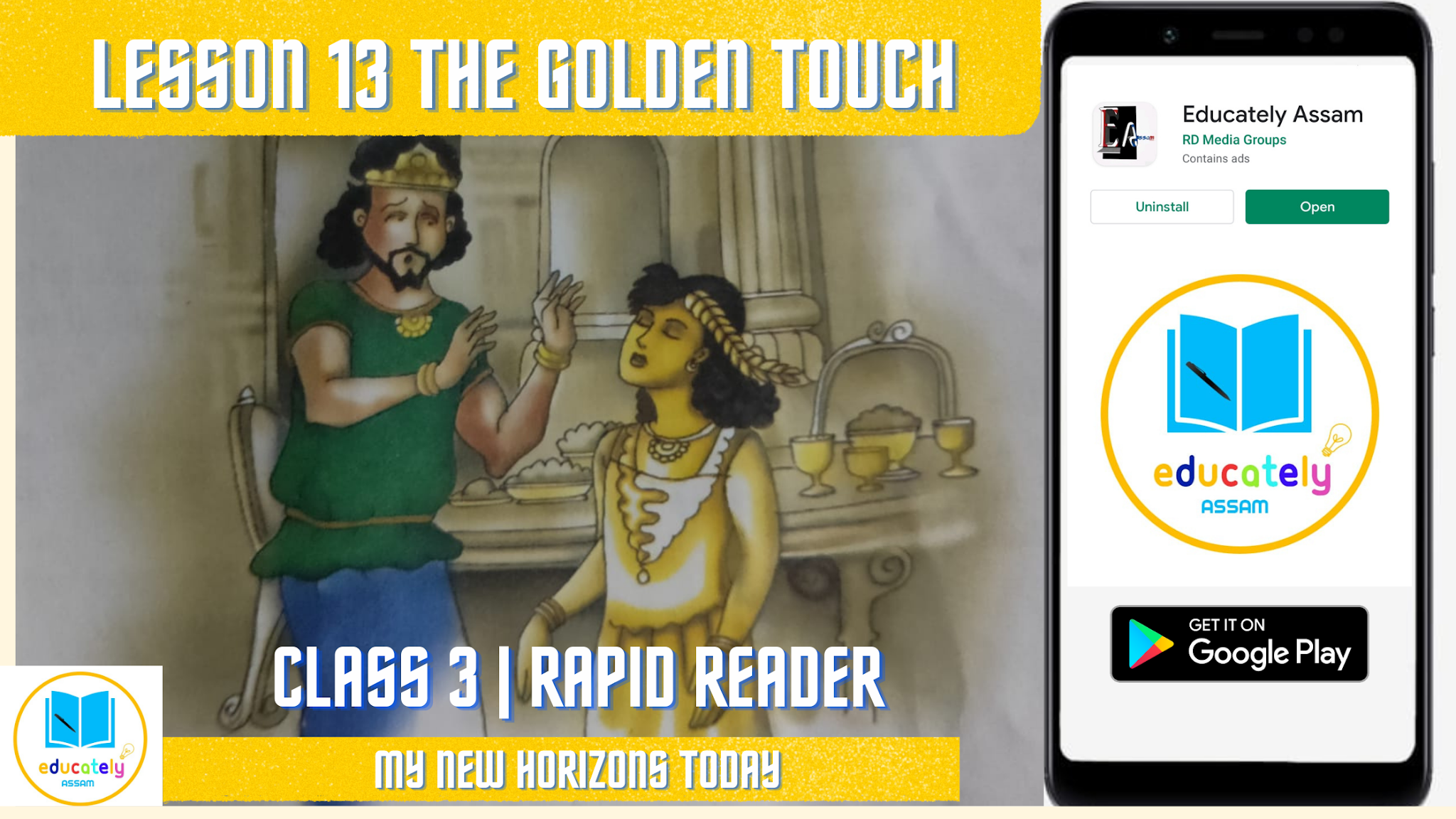Lesson 18 | Poem | Someone questions answers | Reader 3 | English

The tiger the brahmin and the jackal questions answers

READING
Some one came knocking
At my wee, small door;
Some one came knocking,
I'm sure - sure - sure;
I listened, i opened,
I looked to left and right,
But nought there was a stirring
In the still dark night;
Only the busy beetle
Tap-tapping in the wall,
Only from the forest
The screech-owl's call,
Only the cricket whistling
While the dewdrops fall,
So i know not who came knocking,
Ar all, at all, at all.
-Walter de la mare
Appreciating the poem
A. Answer the following questions.
1. Is it day or night in the poem?
Answer: It is night in the poem.
2. Why does the poet open the door?
Answer: The poet opened the door, because someone came knocking.
3. What does the poet mean by 'Nought there was a-stirring'?
Answer: By the line 'Nought there was a stirring'. The poet of the poem means that their was nothing moving when he opened the door.
4. List the sounds that he heard. Could one of these sounds explain the knocking at the door?
Answer: The sounds that the poet heard are - knocking, tap-tapping, screech, whistling.
5. Who do you think the 'Some-one' is?
Answer: In the poem 'someone', the poet narrates a mystery experience of his life. One night, the poet was inside his house, then suddenly some one knocked at his wee door. But, to his surprise, when he opened the door, he saw no one. The outside of his house was not visible due to the darkness of the night. The night was very horrifying, and that suspicious knocking doubled the poet's fear. I think the suspicious knock was just an illusion of the poet.
B. Match the following words with their meanings.
1. Wee - Small
2. Still - Silent
3. Screech - owl - A night bird
4. Nought - nothing
5. cricket - a small brown insect












